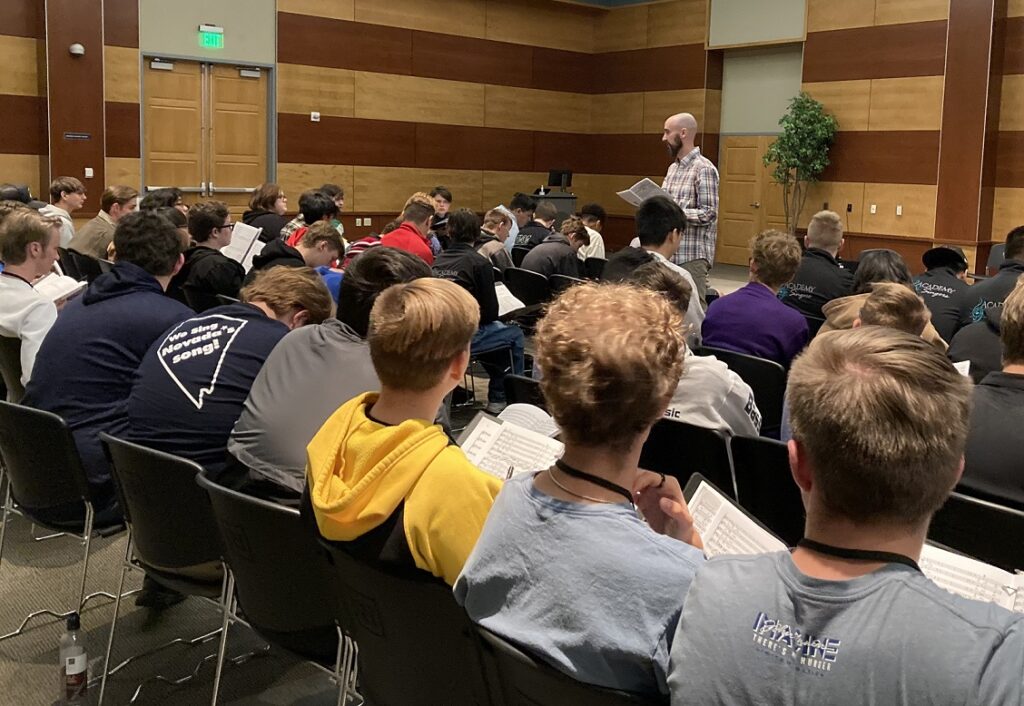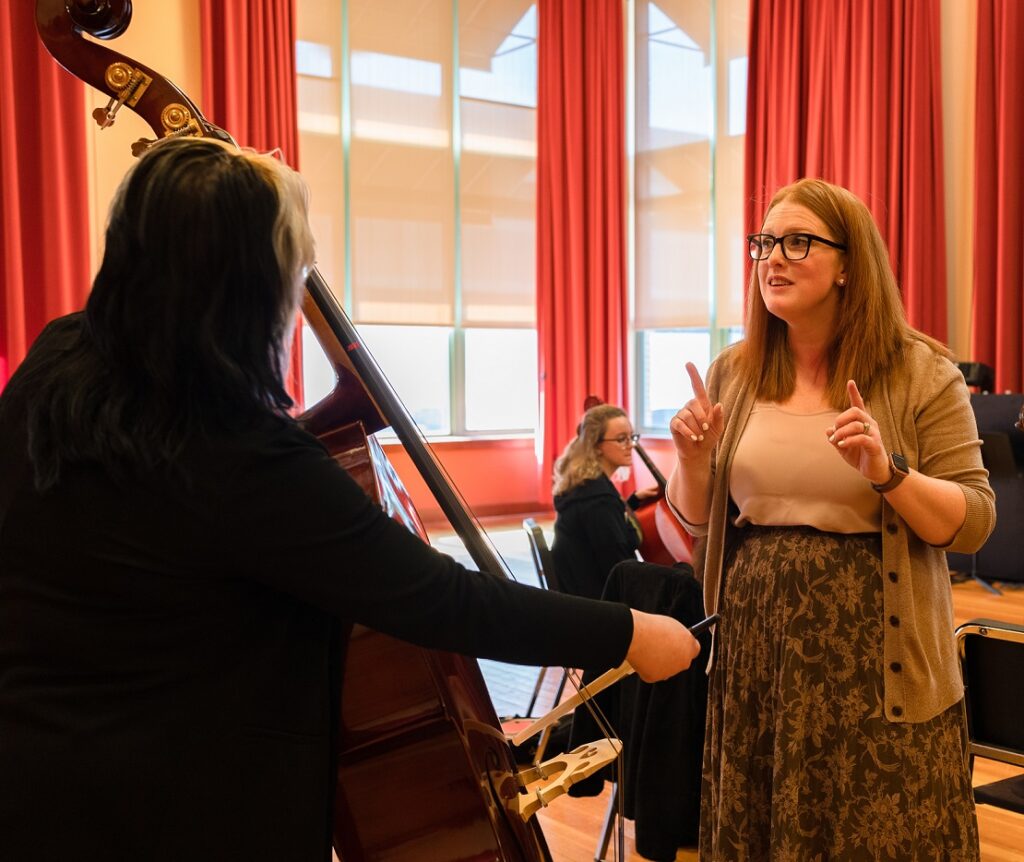Tagged Under:
Requisite Recommendations for First-Year Music Teachers
The 2025 “40 Under 40” educators offer essential tips for new music teachers to help them succeed and thrive.
Starting your first “real” job as a music educator is exciting and nerve-wracking. As you embark on establishing your own program and connecting with your students, heed the advice from some top music educators — the Yamaha “40 Under 40” class of 2025.
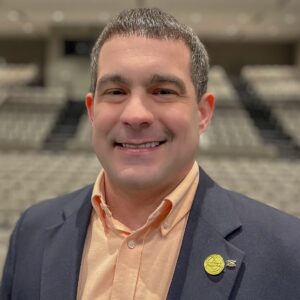
Dr. Gene Butler, Director of Bands at Smith Station High School in Alabama, is passionate about helping and supporting new music educators. He says:
- Tip 1: Relationships are the most important because they form the foundation for a positive and productive music program.
- Tip 2: Be the best advocate for your students and program.
- Tip 3: Organizational skills are vital because they help ensure that lessons, rehearsals, events, and administrative tasks are executed efficiently and effectively.
- Tip 4: Student leadership matters all year because it fosters a sense of responsibility, accountability and teamwork that extends beyond just rehearsal time.
- Tip 5: Prioritize your personal time outside of school hours and maintain a healthy work-life balance. Being a music educator is demanding and can be all-consuming, so it’s important to recharge mentally, emotionally and physically to avoid burnout.
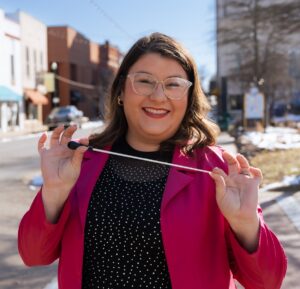 Kim Webb, Director of Bands at Greene County Tech School District in Arkansas, offers these tips:
Kim Webb, Director of Bands at Greene County Tech School District in Arkansas, offers these tips:
- Tip 1: Don’t quit. It’s hard, but it’s hard because the work we do is important. It will get better, but that first year it will feel like you’re drowning.
- Tip 2: Your students are people. Treat them like people. Have conversations with them. Laugh with them. Give them grace. You don’t have to be serious all the time.
- Tip 3: Reach out to other band directors. If they are good educators, they will want to help you!! Visit their classes. Have them visit yours. Get feedback — and not just from a principal. If you don’t think your band is “ready” to have a clinician out, have them out anyways. That’s the best time to get feedback.
 Erin Bara, the Executive Director of We Make Noise and the Assistant Professor and Director of the Popular Music Program at Arizona State University, recommends:
Erin Bara, the Executive Director of We Make Noise and the Assistant Professor and Director of the Popular Music Program at Arizona State University, recommends:
- Tip 1: Be as organized as possible!!!
- Tip 2: Don’t be afraid to say “I don’t know.” No one knows everything, and it’s good to model to your students that learning is a lifelong adventure.
- Tip 3: Hang in there — the first year is the hardest and things get easier, I promise!!
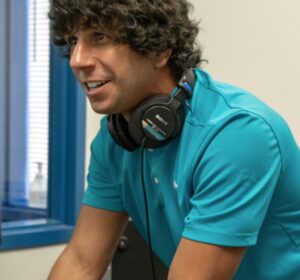 Nicholas Popovich, Music Technology Teacher at Shadow Mountain High School in Arizona, says:
Nicholas Popovich, Music Technology Teacher at Shadow Mountain High School in Arizona, says:
- Tip 1: Embrace flexibility and continuous learning. Education and music industries constantly evolve, so stay adaptable, open to new approaches and techniques. Encourage growth mindset and be willing to explore new technologies alongside students. Foster a collaborative, innovative environment.
- Tip 2: Focus on project-based learning. Design curriculum around hands-on, collaborative experiences. Students must create original music, experience real-world projects and engage peer-to-peer across disciplines. Build technical skills while enhancing creativity, critical thinking and problem-solving abilities.
- Tip 3: Build relationships and connections. Establish a supportive environment by meaningfully connecting with students. Forge partnerships with organizations, professionals and institutions. Provide real-world experiences, networking opportunities and broader perspectives or pathways.
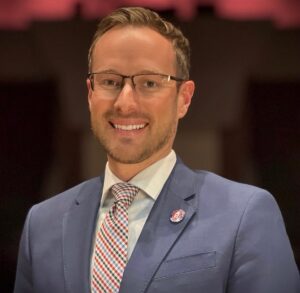 Joshua Race, Director of Bands at Fountain-Fort Carson High School in Colorado, offers these tips:
Joshua Race, Director of Bands at Fountain-Fort Carson High School in Colorado, offers these tips:
- Tip 1: Don’t put yourself on an island. Ask questions and don’t isolate yourself. You learn more about teaching your first few years of teaching than your time spent in school.
- Tip 2: Find a mentor or two or three! Invite them to your room and be open to constructive feedback on how you approach your teaching. Keep doing this forever.
- Tip 3: Reflect on your teaching day to day and class by class. Debrief with yourself and ask yourself if you’re reaching every student equally both as musicians and as people.
 Dr. Aaron J. Witek, Assistant Professor of Trumpet and Coordinator of Brass and Percussion at Stetson University in Florida, recommends:
Dr. Aaron J. Witek, Assistant Professor of Trumpet and Coordinator of Brass and Percussion at Stetson University in Florida, recommends:
- Tip 1: The first year is always the toughest, but it’s one you’ll never forget. Embrace the challenges as they lay the foundation for your future as an educator. Make sure to take time for yourself — understand your own needs and prioritize them. It’s easy to get caught up in the pressure and feel like everything is urgent. While pushing yourself may bring outside recognition, it’s not sustainable in the long run. Focus on your trajectory and work on building healthy habits that will support you throughout your career.
- Tip 2: Don’t give up — remember your “why.” Stay curious and fascinated by figuring out how to solve each challenge that comes your way. Problem-solving will help you grow.
- Tip 3: Remember that you never know what’s going on in someone’s life, and the way you treat them can make a huge difference. Teaching is a people-centered profession, so take care of your students so they can thrive and learn.
 Kevin Morrison, Director of Bands at Lambert High School in Georgia, says:
Kevin Morrison, Director of Bands at Lambert High School in Georgia, says:
- Tip 1: Talk less, play more. I wish I had learned this when I first started out. Learning to play music involves many different skill sets that all need to be developed by doing. Young educators often look for “the golden comment” that will change how everyone thinks about everything, and really all the students needed was to do it again.
- Tip 2: Know what you want then seek out people who know how to do that. What kind of program do you want to have? What do you want your band to sound like? Seek out people who have made their bands sound/look/operate the way that you want yours to and ASK FOR HELP!
- Tip 3: Let students do things, and let them fail at it. I am still working on this one, but the goal is to show students how to create and grow! Our job as educators is help guide them through that process, not carry them. When they realize that no one is going to do it for them, they have it to do it themselves, they will! And you get to watch in real time as they become more self-assured and proud of all the things they can do.
 Lindsay Cummings wears many hats, including Artist Faculty for Musical Theatre Voice at The Chicago College of Performing Arts at Roosevelt University, Professor of Musical Theatre Voice at Loyola University Chicago, Owner of Chicago Music & Acting Academy, and Executive Director and Founder of Downstage Arts. She says:
Lindsay Cummings wears many hats, including Artist Faculty for Musical Theatre Voice at The Chicago College of Performing Arts at Roosevelt University, Professor of Musical Theatre Voice at Loyola University Chicago, Owner of Chicago Music & Acting Academy, and Executive Director and Founder of Downstage Arts. She says:
- Tip 1: Remember that you are training professional make believers. You are in the business of fun, of stories and of magic. In doing so, you will create more thoughtful and emotionally intelligent humans.
- Tip 2: Do assessments with your students — quarterly, bi-annually or annually. Have them set goals for themselves and use that time to reflect on their progress and their goals.
- Tip 3: Give them a safe space to make mistakes. Patience is truly the key to teaching any age but teaching someone to sing who’s never sang before REALLY takes patience. It’s so important to create a learning environment that supports, encourages and lifts up your students. That also means leading by example and owning YOUR mistakes. When I’m playing piano and mess up badly enough that my student doesn’t come in for their entrance, I say, “Whoops, my mistake! I need to practice that part! Let’s try it again.” Seeing their teacher own their mistakes will dismantle the shame students often feel around not getting it right immediately. How boring would it be if we got it right every time?!
 Bob Habersat, Commercial Music Teacher at Oak Lawn Community High School in Illinois and Director of Shedthemusic.com, offers these suggestions:
Bob Habersat, Commercial Music Teacher at Oak Lawn Community High School in Illinois and Director of Shedthemusic.com, offers these suggestions:
- Tip 1: Plan more than you think you need to. I still create daily lesson plans and map out my sequences thoroughly. Having a plan helps me adapt on the fly without losing focus.
- Tip 2: Continue developing your own musicianship and creativity. If you’ve never recorded or written a song, do it — and share that process with your students.
- Tip 3: Keep open communication with your students. Ask for their feedback and let them see what you’re working on.
Bonus Tip: Never feel like an imposter. Keep learning and trust that you have valuable skills to offer your students.
 Shan Kazmi, Director of Bands, Zion-Benton Township High School in Illinois, recommends:
Shan Kazmi, Director of Bands, Zion-Benton Township High School in Illinois, recommends:
- Tip 1: Find the joy in the grind. This job is hard, but all jobs are hard if you want to do them well. A lot of teachers hear “Find your Why” at some point in their careers, but I believe you should find your “Why Not?” instead. Teaching is one of the most influential things you can do for others in this world. It really is the best job. The juice is worth the squeeze.
- Tip 2: Don’t make everything about you. I made a lot of foolish mistakes in my early years because I wanted to either stay within my comfort zone or say, “Look what I did.” I didn’t really stop to ask myself if it was best for my students. Remember that we (music educators) are wired a little differently, so things that make perfect sense to us, may not be as widely accepted to our student populations.
- Tip 3: Build a network. It’s very easy for music teachers to feel isolated in their roles. Make sure you have a mentor whether it is someone in your building/district or someone from the outside who you trust. Start in your own building by making it into the teachers’ lounge at lunch or join a committee to meet other teachers. Outside of school, try to join a community ensemble. I have made so many connections through the community bands I have performed in and many have helped my program be successful in some way.
 Lilly Streich, 5-12 Vocal Music Teacher at Galena Unit School District in Illinois, offers these tips:
Lilly Streich, 5-12 Vocal Music Teacher at Galena Unit School District in Illinois, offers these tips:
- Tip 1: Don’t be afraid to roll up your sleeves and put in hard work to make your music program great.
- Tip 2: Support all students and meet them where they are at instead of trying to push them to where you think they need to be.
- Tip 3: Take a look at your current (or new) program and see where the gaps are to get more students interested and engaged in music in new ways, such as music theory, adaptive music, electronic music, modern band or music appreciation.
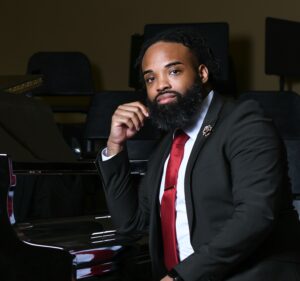 Dr. Cordara X. Harper, Assistant Professor of Music Education/Choir Director, Music Education Coordinator and Vocal Music Coordinator at Grambling State University in Louisiana, recommends:
Dr. Cordara X. Harper, Assistant Professor of Music Education/Choir Director, Music Education Coordinator and Vocal Music Coordinator at Grambling State University in Louisiana, recommends:
- Tip 1: Be a source of inspiration for all you get to encounter.
- Tip 2: Foster an environment where everyone feels seen, heard, valued and welcomed.
- Tip 3: Never stop learning and seek mentorship at every stage of your journey.
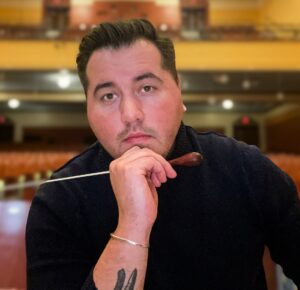 Zane Kaiser, Band and Orchestra Teacher at Justice Page Middle School in Minnesota, offers these suggestions:
Zane Kaiser, Band and Orchestra Teacher at Justice Page Middle School in Minnesota, offers these suggestions:
- Tip 1: Set boundaries for yourself when you can, but also know that it is okay to be not okay.
- Tip 2: Don’t quit mid-year. Resiliency is one of the strongest skills you can have in education.
- Tip 3: There are so many things you don’t know early on. I am still learning more every day! Finding people to support your learning will help you grow not only as a music educator, but as a whole person, too.
 Leah Motl, Orchestra Teacher at IJ Holton Intermediate School in Minnesota, says:
Leah Motl, Orchestra Teacher at IJ Holton Intermediate School in Minnesota, says:
- Tip 1: Connect with teachers in your building (not just other specialists). All teachers in your building are on the same team — for the students. Take the time to build trust and community with other teams and departments. Whether you are re-building a program, making changes or simply need to pull students from a class for lessons, positive relationships between teachers can make a huge difference in the implementation and support of your ideas or asks.
- Tip 2: Learn to prioritize (your time). The learning curve in years 1 to 5 is intense, and some things will have to take a backseat, but that shouldn’t include your well-being. Focus on tasks that directly deal with students and teaching first. Make it a goal to leave at contract time and leave work at work as often as possible, even if that means one day/week to start.
- Tip 3: Learn to negotiate. This is essential to our profession. Whether you are advocating for a student, schedule change or your job, advocacy and negotiation go hand in hand. Behind every ask is a “give-and-take” situation. Approach hard conversations with empathy, data (quantitative and qualitative) and aim for long-term solutions by chipping away at issues through negotiation.
 Michael Blanco, the Assistant Director of Mariachi at Las Vegas High School, offers these tips:
Michael Blanco, the Assistant Director of Mariachi at Las Vegas High School, offers these tips:
- Tip 1: Never give up! Push through every day, even the hard ones.
- Tip 2: You are good enough — some days it’s hard to believe that you are in your position and it is easy to doubt myself. Watch your students perform — it’ll inspire you.
- Tip 3: Meet students where they are at. Be patient and understanding.
 Evan Aguilar, the Director of Choral and Piano Activities at Cibola High School and Albuquerque Public Schools in New Mexico, recommends:
Evan Aguilar, the Director of Choral and Piano Activities at Cibola High School and Albuquerque Public Schools in New Mexico, recommends:
- Tip 1: Your challenges are portals to making you unique and your artistry interesting. Perfection is boring and unattainable, so embrace ALL the qualities of your life, program and experience as a way to connect, inspire and help others.
- Tip 2: This profession is a marathon, not a race. Choose how and where you can be consistent with your students and hunker down and take care of yourself. You have years to develop your mastery.
- Tip 3: Find time to do something that fills you with joy to keep you inspired.
 Cody Jackson, Band Director at Heights Middle School in New Mexico, says:
Cody Jackson, Band Director at Heights Middle School in New Mexico, says:
- Tip 1: Never be afraid to ask for help! Our greatest moments of growth as an educator can just be one question away. Master teachers are lifelong learners.
- Tip 2: Never be afraid to experiment! Keep trying things until you find your unique style of teaching in all the concepts you’ll eventually teach.
- Tip 3: Never be afraid to model for students! Our students deserve to see what it is to be a musician through us as their teacher. Get down on their level and learn right along with them.
 Liam Keller, Director of Orchestras at Chatham High School and Lafayette Avenue School in New Jersey, recommends:
Liam Keller, Director of Orchestras at Chatham High School and Lafayette Avenue School in New Jersey, recommends:
- Tip 1: Learn to love failure, it’s the best way to grow.
- Tip 2: Never be afraid to try something. No matter how small it may seem, it may be what helps a student develop a lifelong love of music.
- Tip 3: Rely on people around you. Surround yourself with people who you look up to, and pick their brain any chance you can.
 Tanatchaya “Tanya” Chanphanitpornkit, Director of Orchestras at Nyack High School in New York and Lecturer at Brooklyn College, says:
Tanatchaya “Tanya” Chanphanitpornkit, Director of Orchestras at Nyack High School in New York and Lecturer at Brooklyn College, says:
- Tip 1: We are teaching humans, and we are teaching them through teaching music. Every student in your classroom is a whole person with their own story, struggles and dreams. Music is our tool to help them grow, but their well-being always comes first.
- Tip 2: Be intentional about access and equity in everything you do. Whether it’s a field trip, a concert opportunity or private instruction, always ask yourself, “Can every student fully participate?” Then work creatively and relentlessly to remove any barriers that might hold students back from these experiences.
- Tip 3: You have the power to uplift voices. Choose your repertoire with purpose. You have the power to shape whose voices get heard and what stories get told through music. Your choices send powerful messages about what music matters and whose artistry we value.
 Laura Del Rosso, Modern Band Teacher at Lower Manhattan Community Middle School and New York City Public Schools, offers these suggestions:
Laura Del Rosso, Modern Band Teacher at Lower Manhattan Community Middle School and New York City Public Schools, offers these suggestions:
- Tip 1: Let your students lead the way. You create a positive rapport with your students when you ask them what kind of music they want to play and engage with the music they listen to on a daily basis. Student choice is everything!
- Tip 2: Eat your lunch and drink water. I’m serious. Self-care is so important. You can’t pour from an empty glass.
- Tip 3: Seek out a mentor. Invite them into your classroom and be open to feedback. This is the best way to receive support and improve your practice in the early years of your career.
 Alex Hitrick, 7-12 Music Teacher at Broadalbin-Perth Jr./Sr. High School in New York, says:
Alex Hitrick, 7-12 Music Teacher at Broadalbin-Perth Jr./Sr. High School in New York, says:
- Tip 1: Be yourself! You’re a human first, musician second. You’ve gotten this far not only because of your musical literacy, but your heart.
- Tip 2: Give yourself time to breathe and relax. It’s easy to never sit down for the day and accidentally skip lunch. You can only be the best for your students if you’re taking care of yourself.
- Tip 3: Every day will bring new challenges. Expect them and face them to the best of your abilities. Be comfortable improvising and adapting to every situation, because it will not go the way you plan. And that’s okay.
 Kate Phillips, PK-5 Music Teacher at Grant Avenue Elementary School in New York, recommends:
Kate Phillips, PK-5 Music Teacher at Grant Avenue Elementary School in New York, recommends:
- Tip 1: In Year 1 you are in SURVIVAL MODE — count every small success as a major accomplishment, and take lesson planning one week at a time. Big picture and long-term planning is a luxury of Year 2 and beyond.
- Tip 2: Dedicate blocks of time during your off hours SOLELY to self-care and for personal hobbies (yoga, crafting, making music for yourself!). It’s really easy to spend every free hour lesson planning, but it’s also really easy to burn out this way!
- Tip 3: Get into colleague’s classrooms, both in your school and in other schools’ music programs, as often as possible. You will learn SO MUCH about teaching and about kids, and every visit will expand your own instructional toolkit.
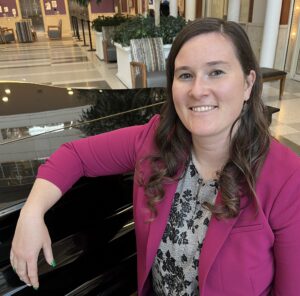 Dr. Sarah Fabian, Director of Bands and Assistant Professor of Music at Gardner-Webb University in North Carolina, says that the foundation you lay in the first year as a music educator will shape your teaching philosophy and approach for years to come. Her top three recommendations:
Dr. Sarah Fabian, Director of Bands and Assistant Professor of Music at Gardner-Webb University in North Carolina, says that the foundation you lay in the first year as a music educator will shape your teaching philosophy and approach for years to come. Her top three recommendations:
- Tip 1: Build relationships first. Music education is as much about fostering connection and trust as it is about teaching musical skills. Students will learn best in an environment where they feel respected, supported and valued. Building relationships with your students should be your priority, not just in terms of their musical growth but in terms of their overall well-being. Spend time getting to know each of your students. Learn their interests, and what motivates them. Don’t just teach the music; teach the students. When students feel connected to you and each other, they are more likely to be engaged and invested in your class.
- Tip 2: Be flexible and adaptable. The first year of teaching is full of surprises. Things won’t always go as planned — whether it’s a challenging rehearsal, unexpected changes to schedules or unforeseen difficulties in the classroom. Your ability to adapt will determine how well you manage these challenges and keep your students on track. Always have a backup plan or two. Whether it’s an alternative teaching method or a change in rehearsal format, being flexible will help you remain calm and maintain control of the classroom.
- Tip 3: Remember to just be yourself. There’s a tendency to feel like you need to conform to some ideal of what a “perfect” educator is supposed to be — whether that’s being overly strict, overly polished or emulating others’ teaching styles. But the truth is, students respond to authenticity more than anything else. When you’re comfortable being yourself, you not only create a more relaxed, positive classroom environment but you also allow your students to be themselves. Embrace your personality, own your mistakes, be relatable and trust in yourself.
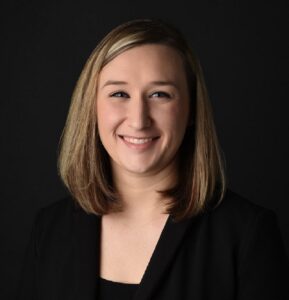 Dr. Marissa Guarriello, Visiting Assistant Professor of String Music Education at the University of North Carolina Greensboro, offers these tips:
Dr. Marissa Guarriello, Visiting Assistant Professor of String Music Education at the University of North Carolina Greensboro, offers these tips:
- Tip 1: Be a sponge — soak up everything you can and analyze how it may or may not fit into your classroom and teaching. There are few times in your life when you are able to go places, do things, and meet people. Make connections, observe classrooms, be messy in your classroom. Over time, these things will shape you and your classroom in ways you never thought possible.
- Tip 2: Adjust expectations. I fear that many educators enter their first year of teaching with a romanticized idea of what being a music teacher is, even after student teaching. Teaching, if you’re doing it right, is hard. It takes a lot of time (more than you’re paid for), work (more than what’s on your contract) and patience (more than you’ve ever had before). Big concerts full of pomp and flare are the exceptions not the norm. The everyday of teaching is anything but flare —- there’s paperwork and classroom management and budget restrictions and so much more. The reality of working with people is that it is super messy. Give it your all everyday anyway, especially on the less-than-exciting days. It’s so, so worth it.
- Tip 3: Ask questions. Of course, ask the easy questions like “Where is the copier” or “Can you help me with…” But also questions about the people in front of you, the material you teach, how you teach and why you do what you do (in every sense of the question). You’ll learn so much, grow so much and you’ll also remember why you stepped into such an amazing career.
 Lee B. Gibson, Assistant Director of Bands at Barberton City Schools in Ohio, says:
Lee B. Gibson, Assistant Director of Bands at Barberton City Schools in Ohio, says:
- Tip 1: Be Passionate about what you are doing. If the kids see that you are passionate about what you do, they will buy in. They might think you are nerdy at first, but just keep being genuine and they will come around.
- Tip 2: When things get hard, you will feel like you are failing. That is okay. A Lot of times that is what growth feels like. Just keep going and it will get easier, you will be more successful as you go
- Tip 3: Realize that there is way more that you don’t know than what you do know. Always keep learning and growing!
 Paul Glader, Band and Choir Director at Bethel-Tate Middle School in Ohio, offers these suggestions:
Paul Glader, Band and Choir Director at Bethel-Tate Middle School in Ohio, offers these suggestions:
- Tip 1: Go into teaching with wide-open expectations for job placement. Just because you may have an idea of what you may like to do, be open to other doors that may open because it just may surprise you.
- Tip 2: Don’t be hard-headed. Ask for help…ask for help…ask for help. Other directors, teachers and administrators have gone through what you are about to experience, and they can help you avoid pitfalls.
- Tip 3: Be true to yourself. Don’t try to be like anyone else. The students will respond positively to your authentic self and can see through you if you try to be something/someone you are not.
 Christopher McCurdy, Band Director at Ulysses S. Grant High School in Oregon, recommends:
Christopher McCurdy, Band Director at Ulysses S. Grant High School in Oregon, recommends:
- Tip 1: Remember that 99% of teaching is pacing, passion and empathy.
- Tip 2: Meet students where they are as your authentic self. Treat them like humans, not cogs in a machine.
- Tip 3: Your students will achieve whatever the internal image of their capabilities are. It is your job to support them where they are, have a mental picture of them that’s a few steps ahead, and be their biggest champion as they strive to achieve what they think is out of reach.
 Coty Raven Morris, Hinckley Assistant Professor of Choir, Music Education, and Social Justice at Portland State University in Oregon, offers these tips:
Coty Raven Morris, Hinckley Assistant Professor of Choir, Music Education, and Social Justice at Portland State University in Oregon, offers these tips:
- Tip 1: If something isn’t going well, start over. Seriously. If it’s a question of teaching particular content, don’t beat yourself up for trying something! Teaching, like all things, is constantly evolving, and we are attempting to cater to so many different types of learners. Our goal is to find more creative ways to repeat our lessons and reach as many students as possible. If something isn’t working out, tell yourself, “Congrats! You now know what won’t work.” Take time to reflect and ask yourself why and what did you learn from the process. And then try something new! If classroom structure isn’t going seamlessly, and your class is disruptive, do not put energy into reprimanding students. That just ruins the rapport built during class. It’s better to have students line up in the hallway as if it’s the first day of school and go through all the first-day procedures. Remind them that your expectations aren’t just academic, but they are also rooted in them being the best versions of themselves. If that wasn’t clearly outlined, give them an opportunity to begin again!
- Tip 2: Teaching students about your boundaries can be one of the best ways to create opportunities to establish respectful rapport in and outside of your classroom! I love getting to know my students and investing in them as individual creatives. That used to look like making myself available for every after-school, before-school and lunch activity. I personally enjoy getting work done with lots of people in my office or classroom, but sometimes, I need to have time on my own to knock out paperwork or just enjoy a quiet lunch alone. There’s nothing wrong with telling your students that you’re unavailable. Teach them that it’s not a rejection of who they are, but the desire to fuel your own well-being so that when you see them again, you can give them your all.
- Tip 3: Be a thimble that makes thimbles. My high school choir teacher told us, “Everyone thinks that you have to give a well of yourself — an ocean of your energy — to others. But if you do that, what is left for you? All you have to give is a sewing thimble. If we all pour this much into the collective well, then when someone is in need, they can take some. One day when we ourselves are in need, we can do the same.” This lesson has always stuck with me because it reminds me about BALANCE, highlighting your gifts and recognizing opportunities to ask for help. It can be very easy in this profession to lose yourself in pouring out to the young people in front of you. The thing is, there will always be more to worry about and more problems that arise. When we practice the thimble rule, we are reminded that our job is not to fix every single problem, but to provide our students with the tools to address issues on their own or with others. The thimble rule also reminds us that sometimes we’re not meant to have the answer to everything, and this is when reaching out to our community — whether that’s administration, parents or empowering students — to find creative solutions is necessary. We are reminded that none of us have to do any of this alone.
 Dr. Cassandra Eisenreich, Associate Professor of Music Education and Flute at Slippery Rock University in Pennsylvania, says:
Dr. Cassandra Eisenreich, Associate Professor of Music Education and Flute at Slippery Rock University in Pennsylvania, says:
- Tip 1: Build strong relationships with everyone in your school community — students, colleagues, administrators and parents. Establishing a supportive network will help you navigate challenges, gain new insights and create a positive, collaborative atmosphere. Fostering trust and open communication with your students encourages a respectful and engaging learning environment, while connecting with colleagues can provide valuable professional support and ideas. Gratitude can have a powerful impact on your relationships and professional growth. Take time to express appreciation for the help, support and effort of those around you — whether it’s thanking a student for their hard work, a colleague for their collaboration or a parent for their involvement. Sending follow-up notes or messages after meetings, performances or events shows that you value people’s time and contributions. Not only does this foster a positive, encouraging atmosphere, but it also strengthens connections and builds a sense of community and trust. Regularly showing gratitude can enhance morale, motivate others, and create a culture of respect and mutual support.
- Tip 2: Embrace flexibility and be ready to adjust your lesson plans on the fly to meet the varying needs, energy levels and interests of your students. Although thorough preparation is essential, things do not always go as planned — students may need additional time to grasp a concept or they may bring new ideas that can actually guide and help to shape the direction of the lesson. By observing and facilitating, adjusting your pacing and allowing for spontaneous bursts of creativity, you can keep students engaged and enthusiastic about the content of the class, fostering an environment where learning can thrive despite the unexpected.
- Tip 3: Keep learning and creating. Nurturing your own growth and creativity as an educator is essential because it not only fuels your passion for teaching, but it also sets an example for your students. When you embrace your own creative process, it allows you to better recognize and encourage the creativity in your students. By observing their unique ideas and expressions, you can provide the support and guidance they need to explore new depths in their creativity. This mutual exchange of creativity helps to support a dynamic learning environment where both you and your students continue to evolve, fostering an atmosphere of exploration and growth.
 Jacob Abbott, the Performing Arts Director at Dresden High School in Tennessee, offers these tips:
Jacob Abbott, the Performing Arts Director at Dresden High School in Tennessee, offers these tips:
- Tip 1: Lean into your strengths and use them to improve your weaknesses.
- Tip 2: Treat your students like you would your own children.
- Tip 3: You are the expert in the room — act like it.
 Nick Blue, Assistant Director of Bands at Franklin High School in Tennessee, says:
Nick Blue, Assistant Director of Bands at Franklin High School in Tennessee, says:
- Tip 1: Don’t be afraid to roll up your sleeves and work hard! It takes a lot of time and hard work to move the needle and achieve goals.
- Tip 2: Find a respected music educator in your community and invite them to your classroom for feedback and advice. Develop a relationship with them and pick their brain on teaching strategies and how to effectively organize a music program. Ask for help!
- Tip 3: Take care of yourself. Stay hydrated, eat healthy and make time for exercise. If you don’t take care of yourself, you won’t be at your best for your students.
 Dr. Liliana Guerrero, Assistant Professor of Voice at the Butler School of Music, University of Texas – Austin, recommends:
Dr. Liliana Guerrero, Assistant Professor of Voice at the Butler School of Music, University of Texas – Austin, recommends:
- Tip 1: What you model to your students is what they will reflect back to you. If you are compassionate with them, they will be compassionate with you.
- Tip 2: You can do it all, but you don’t have to do it all at once. When you’re juggling a lot of things, know which balls are made of glass and which are made of rubber.
- Tip 3: The best gift you can give your students is a teacher who takes care of themselves.
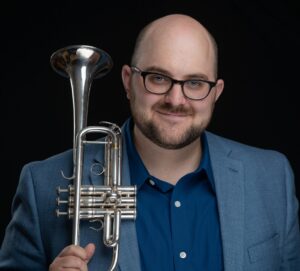 Dr. Andrew Stetson, Professor and Director of the School of Music at Texas Tech University School of Music, offers these tips:
Dr. Andrew Stetson, Professor and Director of the School of Music at Texas Tech University School of Music, offers these tips:
- Tip 1: First of all, enjoy it. You’ll only be a first-year teacher once, and before you know it, you’ll have been on the job a long time. Learn everything you can and enjoy these pivotal few years that will help shape your entire career.
- Tip 2: Trust yourself and don’t be afraid to make mistakes. There are a lot of lessons and experiences that got you to this point, and a lot more lessons and experiences to come.
- Tip 3: Don’t forget your mentors. Great mentors will be in your corner your entire career. Reach out to them. Check in often.
 Riley Warren, Director of Percussion and Assistant Band Director at Forney High School in Texas, says:
Riley Warren, Director of Percussion and Assistant Band Director at Forney High School in Texas, says:
- Tip 1: Don’t be afraid to take risks! I had no idea when I started the Forney ISD Middle School Indoor Drumline how beneficial it would end up being for our program as a whole. It was a lot of hard work to get it off the ground, but now I can’t imagine our program without it.
- Tip 2: Stick to your guns and see your ideas through. In my first year as Director of Percussion at Forney High School, I implemented an All-Region pass-off system that wasn’t the most popular in its first few years, but is now one of the main reasons for our program’s success, with almost every student participating every year. Some ideas aren’t meant to last, but you’ll never know until you give them an honest go.
- Tip 3: Don’t be afraid to change it up every once in a while. For many years, we were stuck in the rut of learning music for the sole purpose of getting a great recording and submitting for festivals. When I realized that this formula was losing its luster, I pivoted to have our annual percussion concert include a guest artist, which has provided a renewed sense of “fun” in the concert preparation process.
 Dr. Rachel Woolf, Assistant Professor of Flute at The University of Texas at San Antonio, San Antonio, Texas, suggests:
Dr. Rachel Woolf, Assistant Professor of Flute at The University of Texas at San Antonio, San Antonio, Texas, suggests:
- Tip 1: Allow yourself to continue to grow and learn with your students. You won’t have all the answers nor should you expect to! Use your mentors and friends who are experts in particular areas and ask for help!
- Tip 2: Give yourself grace as you develop your teaching style and methodologies. This will take time, which is exciting! Stay open minded to new ideas as you continue to discover what is best for you and your students. Have faith in time to figure things out.
- Tip 3: Teaching is a marathon, not a sprint, so pace yourself! Balance giving your best with preserving energy for yourself. Take guilt-free time to rest and unplug; recharging will boost your productivity. Find a grounding activity outside of music that brings you joy and helps sustain your well-being.
 Orien Landis, Director of Bands at American Fork High School in Utah, takes a page out of the John Wooden playbook on this one. He says:
Orien Landis, Director of Bands at American Fork High School in Utah, takes a page out of the John Wooden playbook on this one. He says:
- Tip 1: Ask questions.
- Tip 2: Ask questions.
- Tip 3: Ask questions.
Find someone smarter than you and ask them questions. This has made all the difference in my career. Seeking advice on music selection, structuring leadership, teaching various pedagogy concepts and more is essential. Someone has likely already been where you are, made the mistakes and figured out the solutions. Asking questions can save you a lot of heartache. The real trick is finding someone you trust to give thoughtful advice. For me, it’s always been wiser or more experienced directors. It can be intimidating to reach out to an older director, but they’re often the ones who can provide truly valuable and sage advice.
 Dr. Catheryn Shaw Foster, Assistant Professor of Practice of Music Education at Virginia Tech, offers these suggestions:
Dr. Catheryn Shaw Foster, Assistant Professor of Practice of Music Education at Virginia Tech, offers these suggestions:
- Tip 1: Find a mentor — someone who is older, wiser and has experienced success. Ask them ALL the questions. LISTEN to them. Be receptive to their feedback.
- Tip 2: Never stop learning. Your diploma gives you permission to teach. The first five years of your career is where the real education happens. Learn from your colleagues, learn from your students and learn from your mistakes (I promise, we’ve all made a few).
- Tip 3: Take care of yourself mentally and physically. Exercise, don’t eat junk (all the time), talk to a therapist, find a hobby. Work shouldn’t be your hobby. Don’t let your job consume you — it will always be there, but time with your family and friends won’t.
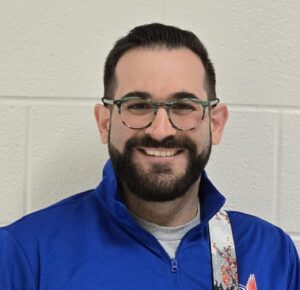 Adam Odenwelder, Guitar Teacher at Belmont Ridge Middle School in Virginia, suggests:
Adam Odenwelder, Guitar Teacher at Belmont Ridge Middle School in Virginia, suggests:
- Tip 1: Think about why your teachers did things the way they did. Just because we grew up being taught a certain way doesn’t mean it’s the right way. Don’t be afraid to do things differently than everyone else.
- Tip 2: Don’t value “cross curricular” stuff over the joy of music-making. We live in an era where music educators have to justify their jobs by supporting literacy through the arts, or teaching math through the arts, etc. However, our job is valuable on its own. I’m not saying reading music isn’t a skill worth having, but don’t become so wrapped up in music literacy that you forget to let the kids play. At the end of the day, the most important thing you can do to make a student a life-long learner of music is to make sure they’re having a good time when interacting with music.
- Tip 3: Don’t forget what your job is. At the risk of sounding like I’m saying, “Remember your why,” it is important to remember that you decided to be a music teacher because as a kid, you loved singing or playing your instrument. Remember that your students are there for the same reasons. Guide them in making music, and don’t accidentally gatekeep opportunities for them to make music
 Annie Ray, Orchestra Director and Performing Arts Department Chair at Annandale High School in Virginia, recommends:
Annie Ray, Orchestra Director and Performing Arts Department Chair at Annandale High School in Virginia, recommends:
- Tip 1: Go watch your colleagues teach — music and non-music alike!
- Tip 2: Be careful of being accidentally with your approach – from unnecessary after-school rehearsals creating real world conflicts for students to not picking repertoire and learning targets that are representative (or the appropriate ability level) of the students in your classroom: “We mistakenly use the arts to divide us. By deeming those that are worth arts education and those that are not.” – Dr. Veronica Morgan-Lee
- Tip 3: Comparison is the thief of joy.
 Michael Schnell, Middle School Band Teacher at Oostburg School District in Wisconsin, says:
Michael Schnell, Middle School Band Teacher at Oostburg School District in Wisconsin, says:
- Tip 1: Keep a journal at school and write in it first thing Monday morning and last thing before you leave on Friday. I find that this is a great way to reflect on what your mindset is for the week, what you are thankful for, and what you want to focus on. It helps center myself, appreciate the joy in what we do and also stay in the present in the moment.
- Tip 2: Remember that you are a person who teaches, not just a teacher. It is easy to wrap up your identity behind your career or hobbies and define yourself by what you do. However, the small distinction between “I am a musician” and “I am a person who plays music,” can help you realize that there are many parts that go into your identity. It is easy as teachers and musicians to put our all into our careers, but it is important to take a step back and care for yourself as well.
- Tip 3: Always be learning and curious. I think back to how much I have learned in my first seven years of teaching about so many different things — instrumental skills, live sound, lighting design, music production, musical theater, technology and more. One of my favorite aspects of my job is that it allows me to explore so many areas that I find interesting or want to learn more about. Don’t be afraid to ask music colleagues or other school staff members for help, advice or guidance.
Check out tips for first-year music teachers from the 2024 “40 Under 40,” 2023 “40 Under 40, 2022 “40 Under 40,” and 2021 “40 Under 40” educators for more invaluable advice!
Top photo: Shutterstock/Andrei Askirka














